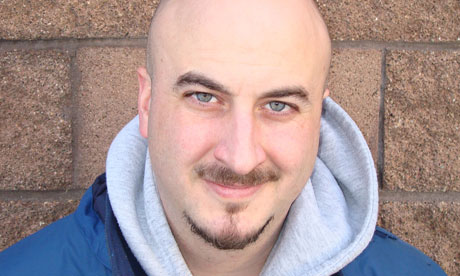
Only a very brave – or very foolish – aspiring novelist would first publish a memoir about trying, and failing, to write a novel, as Greg Baxter did in his acclaimed A Preparation for Death (2010). But on the evidence of this, his first published novel, all those fictional cul-de-sacs prepared him rather well.
Because even when it doesn't entirely succeed, The Apartment is admirable for its scope, ambition and unashamed seriousness of purpose, as well as its willingness to take stylistic and structural risks.
The set-up is both simple and, to anyone who has ever been adrift and alone in a strange town, numbingly familiar. A 41-year-old American has come to a freezing city somewhere in Europe and doesn't intend to leave. (To say he "intends to stay" would make him sound far more purposeful than he ever claims to be.) He has plenty of money, no friends, no plans – though he notes that wherever he goes, he creates "an alarming foreignness", and his keenest wish is therefore to blend in, to be invisible.
He meets a young local woman, Saskia, and the two fall into what the narrator describes as "a swift intimacy of pure circumstance". In other words, they spend a great deal of time together, but without ever thinking beyond the next hour or so – a limitation that the nameless narrator seems to relish.
This desire to keep things fluid and unstated, to "anonymise", extends to almost every aspect of his new existence, including his faint dread at swapping the transience of the hotel he is in for the roots that a rented apartment will represent.
But as he and Saskia venture out into the city to find him somewhere to live, we learn that he fought in Iraq and later, as a civilian contractor, made himself rich by providing intelligence for both Iraqi police and the US army. Now, weighed down by his 30 pieces, he is seeking his own kind of penance/ending/self-obliteration.
For such a relatively short, tightly written novel, this book wears many (occasionally conflicting) guises. A small novel containing a huge one. Or a huge one, trying to pass itself off as something slim, exquisite and jewel-like.
Depending on how you look at it, Baxter's prose is either intriguingly spare and monotonous or else maddeningly so. Mundane actions such as showering or opening windows are described with an attention to detail that starts off as faintly irritating but turns convincing – so much of this novel is emphatically hyper-real – and even sometimes manages to be mysteriously enthralling.
Similarly, the relationship (or not) between the narrator and Saskia is evoked with such gentle frankness of spirit that a part of you longs for the author to take it further. We know almost nothing of Saskia but brilliant, microcosmic details – she has "photos of a thousand crumbling doorways and rusted gates" on her phone – bring her alive. Yet – and here the anonymising instincts of author and narrator seem unnervingly to collide – it's as if Baxter doesn't want to let us, or himself, ever become too involved.
Instead we are constantly diverted, or thumped on the head, with stories from the narrator's past, whether the casual cruelty of the US military he has hung with, or strangers who blather on about Virgil. Some of these anecdotes are more successful than others. There is no doubt that Baxter's style works best when it relaxes and allows us to engage with the vivid detail of a situation rather than trying to inflate it into something grand and philosophical.
Nowhere is this more apparent than in the scene towards the end when, finding himself possibly about to be beaten up at a party, the protagonist understands that "this night, the eve of a life that I hoped would represent the entombment of the violence I have witnessed or imposed upon the world, seemed headed for violence" and, more chillingly, realises that his primary response would simply be "Oh well". If this novel has a heart of darkness, that is it. And it's unsurprising that it reveals itself right there, in a party in a city in the middle of present-day Europe, rather than in any of the more grandiose scenarios that the author has conjured along the way.
Then by Julie Myerson is published by Jonathan Cape and out in paperback in June

